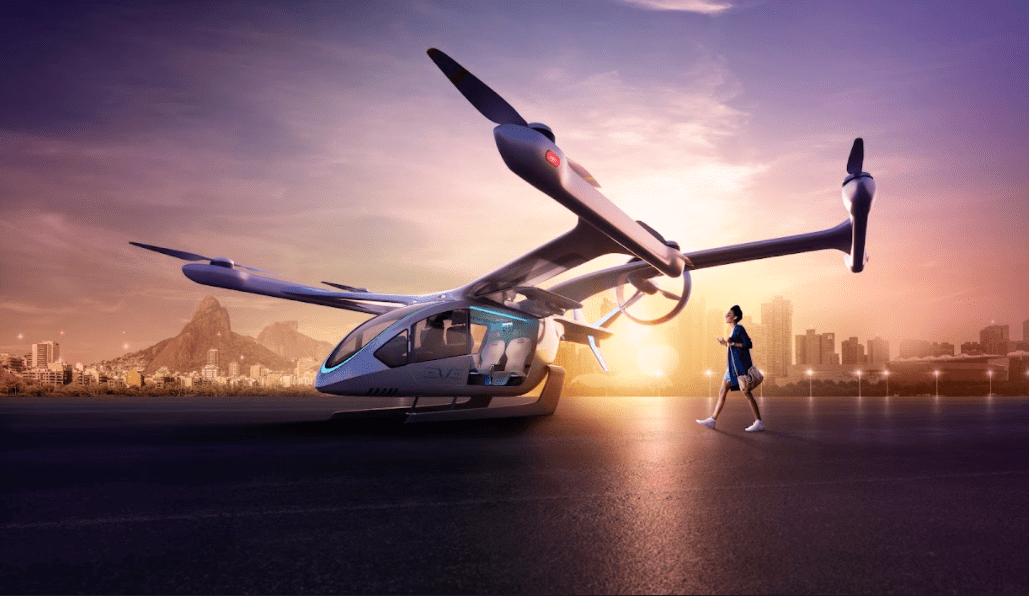
Eve Air Mobility is starting a UAM simulation in Rio de Janeiro next month. (Eve Air Mobility)
Embraer’s electric vertical takeoff and landing (eVTOL) subsidiary Eve Air Mobility will start operating an Urban Air Mobility (UAM) simulation with six passenger-carrying flights a day from Barra da Tijuca to the Tom Jobim International Airport – RIOgaleão, according to an Oct. 26 announcement from the company.
The UAM simulation will use a helicopter with flights charged at a “more affordable cost than a conventional helicopter service,” Eve said in an Oct. 26 press release. On-demand private aircraft flight provider Flapper has already started selling tickets for the UAM simulation, scheduled to begin on Nov. 8.
“Eve’s human-centered approach to development seeks practical validation of concepts and assumptions that will help us understand and address the key challenges associated with delivering the service. Rio de Janeiro is one of the cities with the worst traffic in the world, and the simulation will help us to survey the real needs of users, partners, and the community who will benefit from our mobility solutions,” André Stein, Eve’s CEO said in a statement.
Eve is leading the simulation as part of a concept of operations that began in August in Rio De Janeiro, and will collaborate with more than 50 specialists from 12 institutions. A key goal for the simulation is to identify the needs of users, the community and other stakeholders involved in the type of operation that Eve is pursuing with the eVTOL aircraft it is developing.
The decision by Eve to launch the helicopter-operated UAM simulation comes several weeks after Brazilian private jet operator Aviation Management Services – Serviços Aeronáuticos Ltda. (Avantto) signed a letter of intention (LOI) to order 100 of its eVTOL aircraft.
Vertiports provider Skyports will be involved in the simulation, along with National Civil Aviation Agency (ANAC) and the Department of Airspace Control (DECEA) that will each be monitoring the operation. Eve is developing an all-electric air taxi that it expects to be ready for entry-into-service by 2026.
Universal Aviation, a global airport services company, will run ground operations for the simulation.